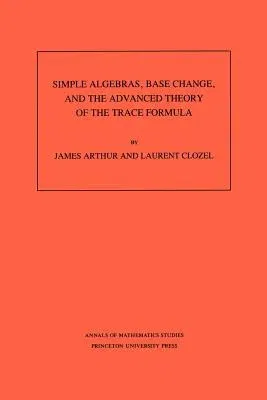James Arthur
(Author)Simple Algebras, Base Change, and the Advanced Theory of the Trace Formula. (Am-120), Volume 120Paperback, 21 June 1989

Qty
1
Turbo
Ships in 2 - 3 days
In Stock
Free Delivery
Cash on Delivery
15 Days
Free Returns
Secure Checkout

Part of Series
Annals of Mathematics Studies
Part of Series
Annals of Mathematics Studies (Paperback)
Print Length
248 pages
Language
English
Publisher
Princeton University Press
Date Published
21 Jun 1989
ISBN-10
0691085188
ISBN-13
9780691085180
Description
Product Details
Authors:
Book Format:
Paperback
Country of Origin:
US
Date Published:
21 June 1989
Dimensions:
23.06 x
15.09 x
1.73 cm
ISBN-10:
0691085188
ISBN-13:
9780691085180
Language:
English
Location:
Princeton
Pages:
248
Publisher:
Weight:
403.7 gm